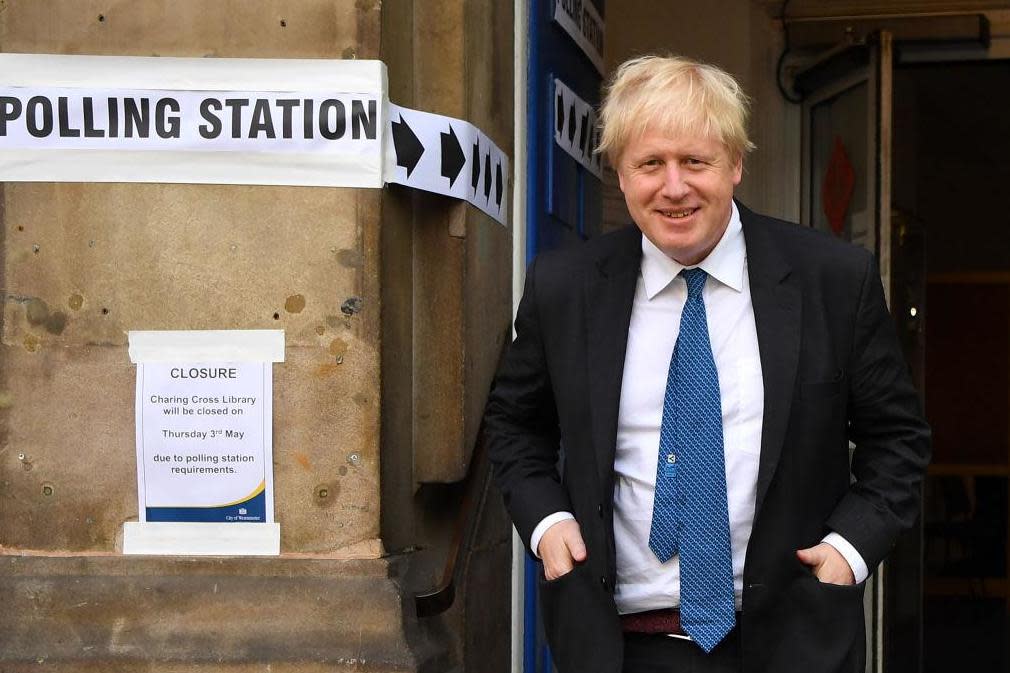When is the General Election 2019? Key UK election dates, debate schedules and results information

Political parties will resume their General Election campaigning following a pause in the wake of the London Bridge terror attack.
Labour, the Tories and the Lib Dems cancelled plans after two people were killed during by a terrorist during a knife rampage on November 29.
Both Jeremy Corbyn and Boris Johnson will announce new policies on Monday as Britain braces for the first winter election in nearly a century, while the Liberal Democrats have pledged to invest billions into transforming mental health services.
Brits head to the polls in just a few days' time in what is being dubbed the "Brexit election" as Mr Johnson's Conservatives hope to secure a ruling majority to break the Brexit logjam.
So with the December 12 General Election looming ever closer, here's everything you need to know ahead of the polls opening.
When is the next general election?
The next general election will take place on December 12, with voting taking place between 7am and 10pm.
The election could not have happened any earlier than this because law dictates that Parliament must dissolve 25 working days before a general election.
After it is dissolved, MPs lose their status and must campaign for re-election, if they decide to stand again.
Why are we having an early election?
The next general election was not due until June 2022 under the terms of the Fixed-term Parliaments Act (FTPA) 2011, which ensures the automatic dissolution of Parliament every five years.
However, a short bill tabled by Mr Johnson bypassed FTPA provisions to allow for a much earlier election date.
The PM had been vying for a trip to the polls for months because he wanted to strengthen his hand in the House of Commons by restoring the Conservative Party’s ruling majority.
Despite failing three times previously to secure a snap election under FTPA rules, Mr Johnson’s calls were finally heeded in the Commons in October.
Opposition parties have their own motives for backing a fresh poll: Labour says it wants to "put an end to the shambolic mess the Tories have made", while the Liberal Democrats and Scottish National Party are seizing on the opportunity to try and stop Brexit in its tracks and expand their respective parties’ national standing.
What are the key dates between now and the general election?
December 4: Deadline for applications by proxy.
December 12: General election - polls open at 7am and close at 10pm.
Who are the candidates in my constituency?
A list of the candidates who are standing - or 'Statement of Persons Nominated' - will be posted on your local authority website and on notice boards in your area after the deadline for nominations has passed.
The deadline for nominations was Friday, November 15. There are 650 constituencies across the UK.
You can find official election information for your area via the Electoral Commission website by typing in your postcode via this link: Electoral Commission: Your election information.
During the 2017 campaign, additional information about candidates in each constituency was collected online on the independent website 'Who Can I Vote For?'.
Can I vote for a new prime minister?
You can only vote to elect your local MP in a general election – you cannot specifically vote for a new prime minister.
If you live in Mr Johnson’s Uxbridge and South Ruislip constituency, you would vote or not vote for him simply in regard to him being your local MP.
This is the same if you live in the constituency of another political party leader.
When will the results of the election be announced?
It can take up to 24 hours for the results from all 650 constituencies to be declared, with the final total possibly coming as late as the evening of Friday, December 13.
Where can I find the results of the general election?
The Standard will report closely on the election results, and provide live coverage as the events unfurl.
Local authorities will also publish results for constituencies in their area.
The Electoral Commission will publish the national election results, as well as those for individual constituencies.
General Election debate schedules
The first head-to-head debate between Mr Johnson and Mr Corbyn was hosted by ITV on November 19, followed by BBC Question Time special on November 22 involving Mr Johnson, Mr Corbyn, Liberal Democrat leader Jo Swinson and SNP leader Nicola Sturgeon.
Then, on November 28, Mr Johnson and the Brexit Party's Nigel Farage snubbed the Emergency On Planet Earth debate on Channel 4 News.
It was attended by Mr Corbyn, Ms Swinson, Ms Sturgeon, Plaid Cymru's leader Adam Price and Green co-leader Sian Berry.
On Friday, November 29 the BBC hosted a seven-way debate at which neither Mr Johnson or Mr Corbyn attended, instead sending Rishi Sunak for the Conservatives and Richard Burgon for Labour.
ITV then hosted a debate on December 1 involving Mr Farage, Ms Sturgeon, Ms Swinson, Greens' co-leader Sian Berry and Plaid Cymru's Adam Price. Again, Mr Sunak and Mr Burgon deputised for their party's leaders.
Another BBC debate is scheduled for December 6, another head-to-head between Mr Johnson and Mr Corbyn, and a 90-minute Question Time special for younger audiences will take place on the BBC on December 9.

 Yahoo News
Yahoo News 
